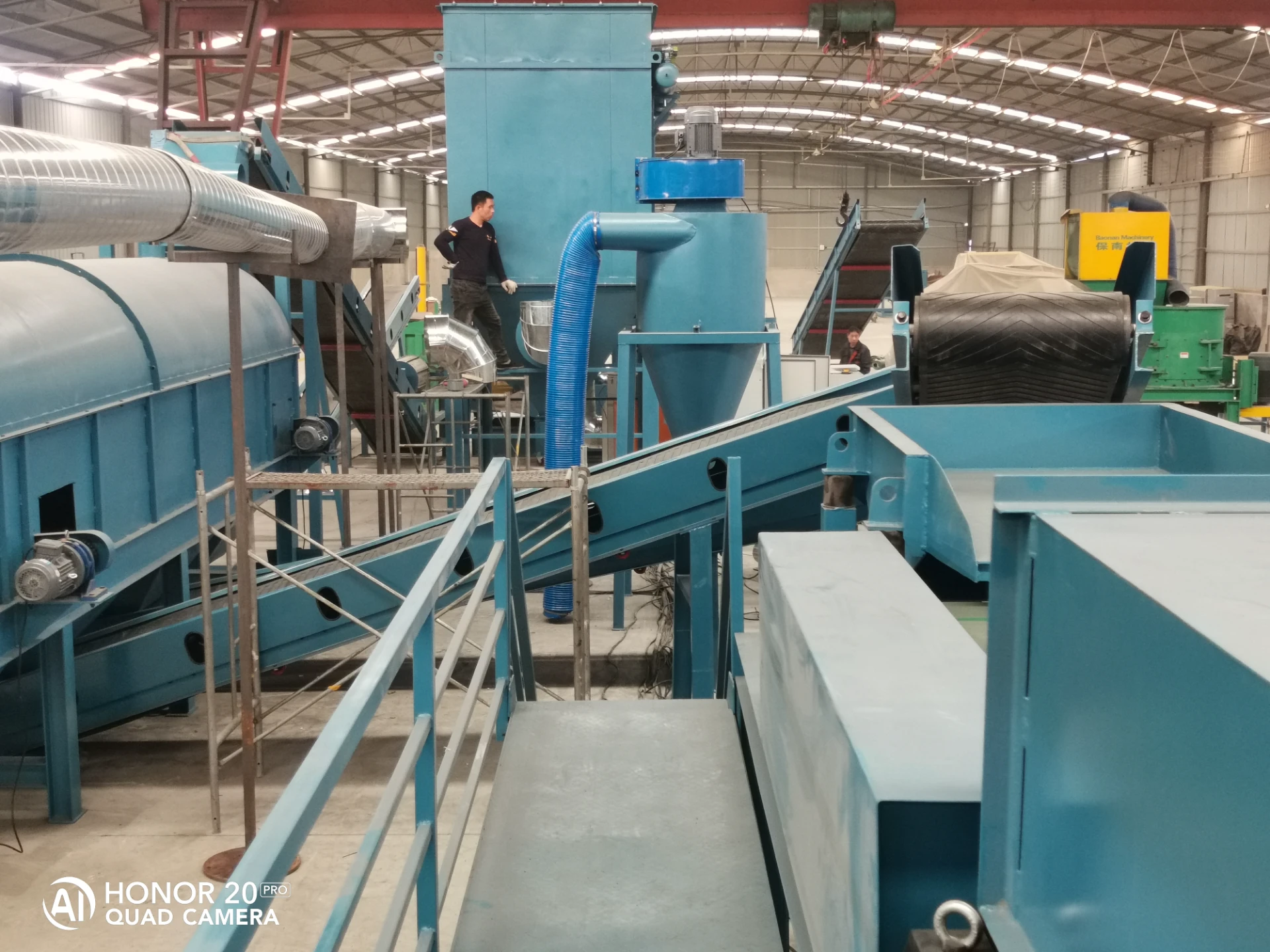
10 月 . 13, 2024 17:51 Back to list
The Role of Eddy Current Separators in Aluminium Recycling
In an age where sustainability is paramount, the recycling of metals, especially aluminium, plays a critical role in reducing environmental impact and conserving natural resources. One of the key technologies instrumental in this process is the eddy current separator (ECS). This innovative machinery has revolutionized the way recyclers can efficiently retrieve non-ferrous metals, particularly aluminium, from various waste streams.
Understanding Eddy Current Separation
Eddy current separation is a non-ferrous metal separation technique that utilizes the physics of electromagnetic induction. When a conductive material moves through a magnetic field, it generates eddy currents, which create their own magnetic field. In an eddy current separator, a belt transports mixed waste material underneath a rotating magnetic field. As non-ferrous metals like aluminium pass through this field, the eddy currents induce, causing the metals to be repelled and ejected from the conveyor belt, effectively separating them from other materials, like plastics and ferrous metals.
Advantages of Eddy Current Separators
The application of eddy current separators comes with several advantages in the recycling process. Firstly, they significantly enhance the efficiency of aluminium recovery from mixed waste streams. Traditional methods of separation can be labor-intensive and less effective, often leading to lower recovery rates. However, ECS technology allows for rapid and precise separation, ensuring that recyclers can reclaim a higher percentage of valuable materials.
Moreover, ECS machines are capable of processing large volumes of material continuously, which is essential in commercial recycling operations. Their automation reduces the need for manual sorting, decreasing labor costs and minimizing the risk of human error. Additionally, eddy current separators are relatively low-maintenance compared to other separation technologies, thus contributing to cost-effectiveness over time.
Impact on Aluminium Recycling

Aluminium is a key material in various industries, including automotive, aerospace, and packaging. Its recycling is not only economically beneficial but also environmentally prudent. Producing aluminium from recycled materials uses up to 95% less energy than creating new aluminium from raw bauxite ore, making the recycling process essential in reducing greenhouse gas emissions.
Eddy current separators make significant contributions to this recycling process by maximizing the recovery of aluminium from waste. This capability ensures that more aluminium is diverted from landfills, thereby conserving resources and reducing the environmental footprint associated with aluminium production. By improving recovery rates, ECS technology supports the circular economy, enabling materials to be reused and reducing the demand for new raw materials.
Challenges and Future Prospects
Despite the numerous advantages, the implementation of eddy current separators comes with challenges. The effectiveness of ECS systems can sometimes be influenced by the composition of the feed material, the size of non-ferrous particles, and the presence of contamination. As recycling operations become more sophisticated, ongoing research and development aim to enhance the sensitivity and reliability of these systems.
Looking to the future, advancements in sensor technology and artificial intelligence may further optimize the capabilities of eddy current separators, allowing for even more precise separation processes. Enhanced machine learning algorithms could lead to better sorting accuracy, adapting to varying waste compositions and improving the efficiency of the recycling process.
Conclusion
Eddy current separators have established themselves as a pivotal technology in the field of aluminium recycling. By efficiently recovering valuable non-ferrous metals from mixed waste, they contribute significantly to sustainability efforts and resource conservation. As the demand for recycled materials continues to grow, the role of ECS technology will only become more critical in ensuring a more sustainable future, where aluminium can be recycled and reused, minimizing the reliance on virgin resources. Embracing such innovations is essential for building a more sustainable and circular economy, benefiting industries and the environment alike.
Latest news
Unveiling the Power of Eddy Current Separator
NewsSep.25,2024
Transform Your Home Recyclin:home metal shredder
NewsSep.25,2024
The Future of Waste Management with Recycling Line Picker
NewsSep.25,2024
The Benefits of a Metal Recycling Plant
NewsSep.25,2024
Revolutionize Material Separation with Onwang Technology
NewsSep.25,2024
Innovative Waste Management: Unveiling the MSW Sorting Plant
NewsSep.25,2024